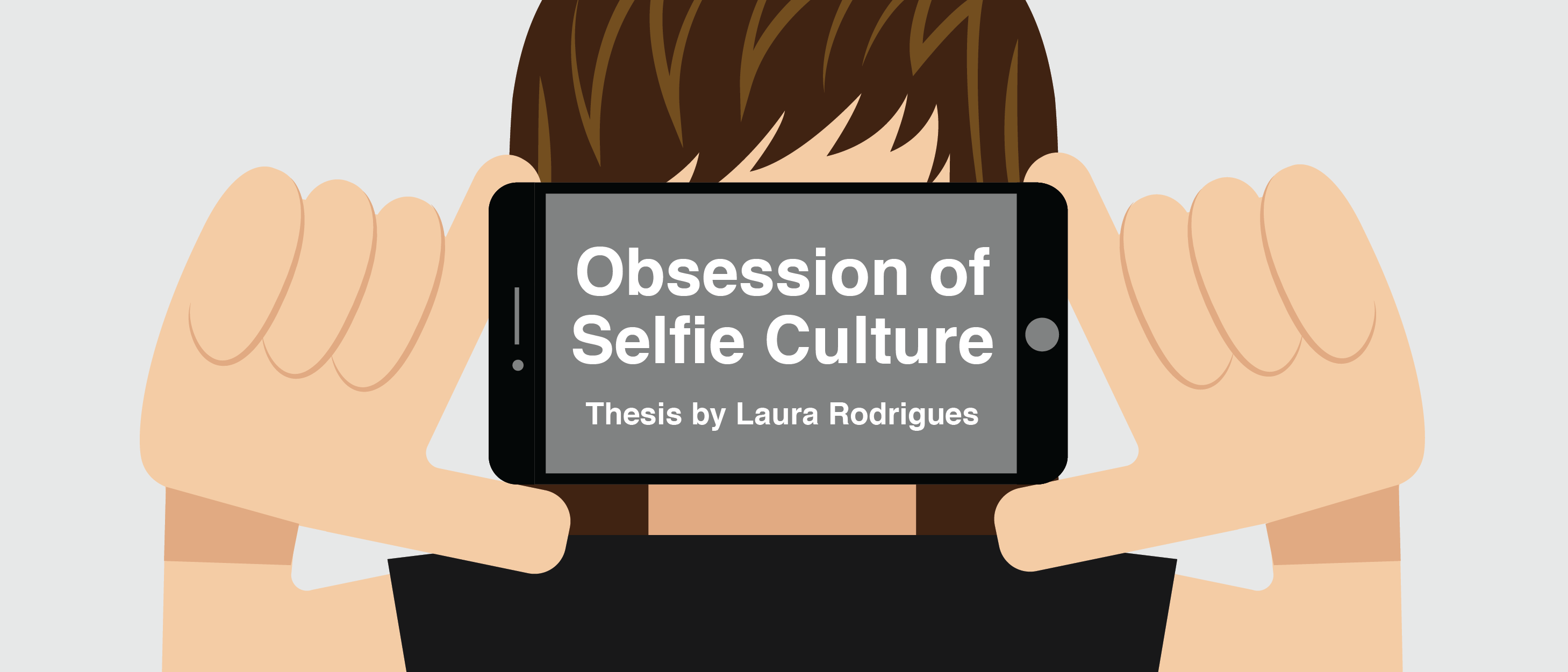



A selfie is when a person takes a picture of themselves using a smartphone and instantly shares it online for others to see on social media, specifically on Instagram. The motivation behind this project is the addiction and pressure on self-esteem by desiring to get that perfect selfie that will blow up on social media.
Originally, I went onto Instagram to post my art and to connect with my friends. As I was on there, I noticed a lot of people, including my friends, were posting selfies. Seeing them getting compliments and watching their Instagram pages grow, it influenced me to start taking selfies to feel belonged with my peers. Once I started taking selfies, it became an addiction that I would put on makeup, style my hair to take selfies in my home as if I was going out.

The intention of selfie culture is supposed to be fun and enjoyable among friends and family to share their current status. However, because selfies documents a person's appearance, it can have an affect on body image.
Also, since selfies are posted and linked to social media, it can influence individuals to constantly take and post selfies to gain attention, especially pulling life-risky stunts to shock individuals to trend on social media. Even though the intention of selfies is harmless, it can cause harm if it consumes you.


Drawing from the Freudian evolutionary psychology of narcissism and the literature on social media popularity, Seunga Venus Jin and Ehri Ryu propose an integrative model of narcissism and reveal dynamic relationships among Instagram users.’

Jessica Maddox explores how the Narcissus myth has been inaccurately adopted by media, specifically in the reporting of selfie-related deaths. Considering sharing is an integral part of the selfie phenomenon, she argues that exhibitionism is a more accurate critique of the selfie.

This exploratory study was designed to investigate how young women make sense of their decision to post selfies, and perceived links between selfie posting and body image. Women were interviewed about their experiences of taking and posting selfies, and interviews were analysed using inductive thematic analysis.


My topic focuses and questions about the notion of narcissism and exhibitionism; how people are becoming so self-absorbed with their screens that it’s affecting and controlling their body image, as well as costing their lives, specifically millennials. Why are millennials so obsessed with selfie culture, if it’s emotionally, mentally, and physically hurting them? I want to use web and social media for communication because the issue is present in the virtual world. I not only want to raise awareness of this issue, but I also want to provide prevention of these issues. Simply, create a selfie awareness brand.

The target audience of selfie culture is mainly millennials because vast majority of millennials have smart phones, obsessed with social media, where selfie culture is a popular trend on social media for them to get noticed/recognized to feel socially accepted. It is specifically directed towards female millennials because they feel this pressure to look perfect/flawless due to celebrities and media.
With the exposure of selfie culture, using photo editing features/filters to idealize their photos are causing them to become obsessed with their appearance on their screen that they want to look the image on the screen in real life. Also, pre-teens are a secondary target audience that is growing with smartphone usage and social media, which increases their chance of being exposed to selfie culture, which can become their future destructive obsession.